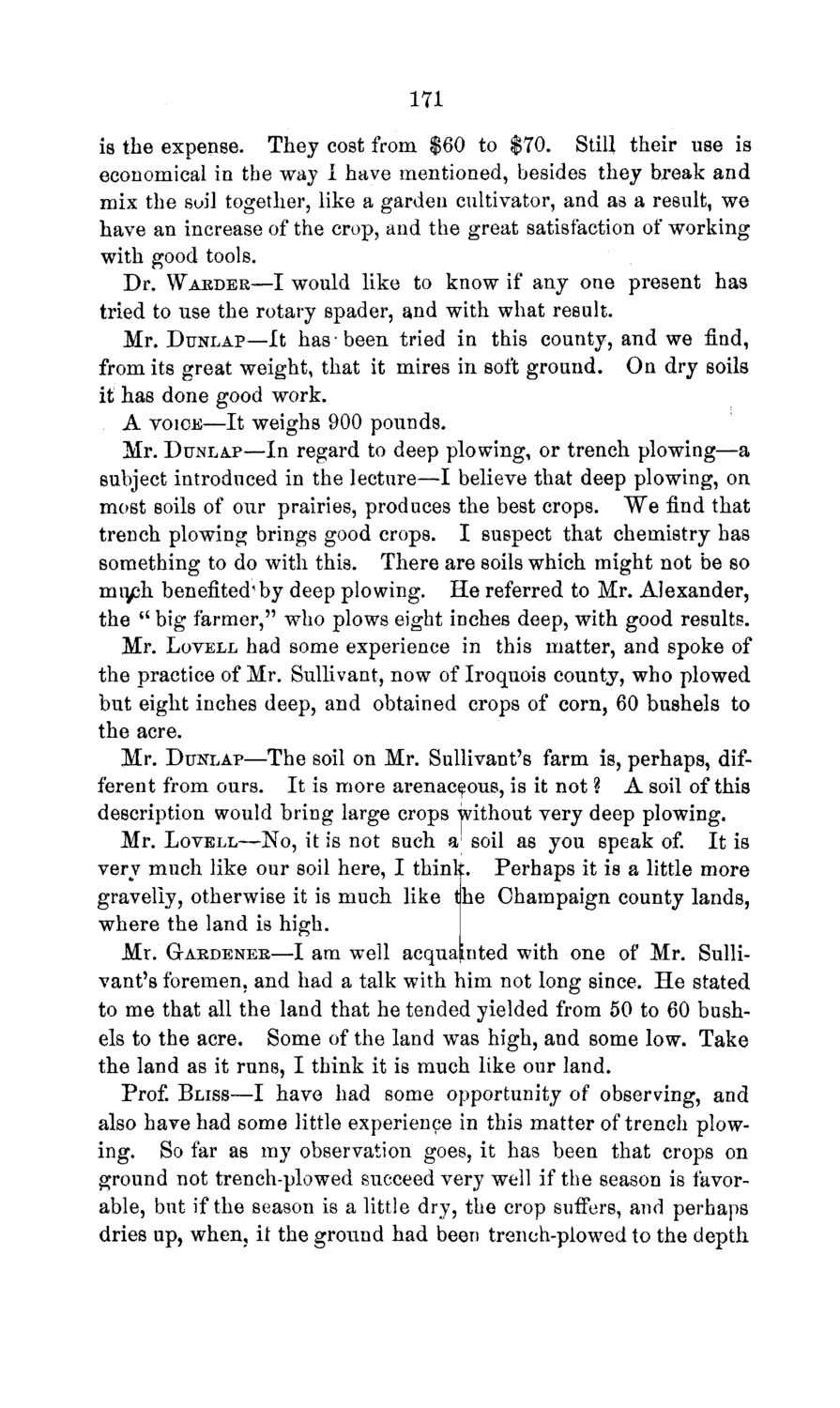| |
| |
Caption: Board of Trustees Minutes - 1869
This is a reduced-resolution page image for fast online browsing.

EXTRACTED TEXT FROM PAGE:
171 is the expense. They cost from $60 to $70. Still their use is economical in the way I have mentioned, besides they break and mix the soil together, like a garden cultivator, and as a result, we have an increase of the crop, and the great satisfaction of working with good tools. Dr. WARDER—I would like to know if any one present has tried to use the rotary spader, and with what result. Mr. DUNLAP—It has • been tried in this county, and we find, from its great weight, that it mires in soft ground. On dry soils it has done good work. A VOICE—It weighs 900 pounds. Mr. DUNLAP—In regard to deep plowing, or trench plowing—a subject introduced in the lecture—I believe that deep plowing, on most soils of our prairies, produces the best crops. We find that trench plowing brings good crops. I suspect that chemistry has something to do with this. There are soils which might not be so miyjh benefited'by deep plowing. He referred to Mr. Alexander, the " big farmer," who plows eight inches deep, with good results. Mr. LOVELL had some experience in this matter, and spoke of the practice of Mr. Sullivant, now of Iroquois county, who plowed but eight inches deep, and obtained crops of corn, 60 bushels to the acre. Mr. DUNLAP—The soil on Mr. Sullivant's farm is, perhaps, different from ours. It is more arenaceous, is it not ? A soil of this description would bring large crops Without very deep plowing. Mr. LOVELL—No, it is not such a soil as you speak of. It is very much like our soil here, I think. Perhaps it is a little more gravelly, otherwise it is much like the Champaign county lands, where the land is high. Mr. GARDENER—I am well acquainted with one of Mr. Sullivant's foremen, and had a talk with him not long since. He stated to me that all the land that he tended yielded from 50 to 60 bushels to the acre. Some of the land was high, and some low. Take the land as it runs, I think it is much like our land. Prof. BLISS—I have had some opportunity of observing, and also have had some little experience in this matter of trench plowing. So far as my observation goes, it has been that crops on ground not trench-plowed succeed very well if the season is favorable, but if the season is a little dry, the crop suffers, and perhaps dries up, when, it the ground had been trench-plowed to the depth
| |